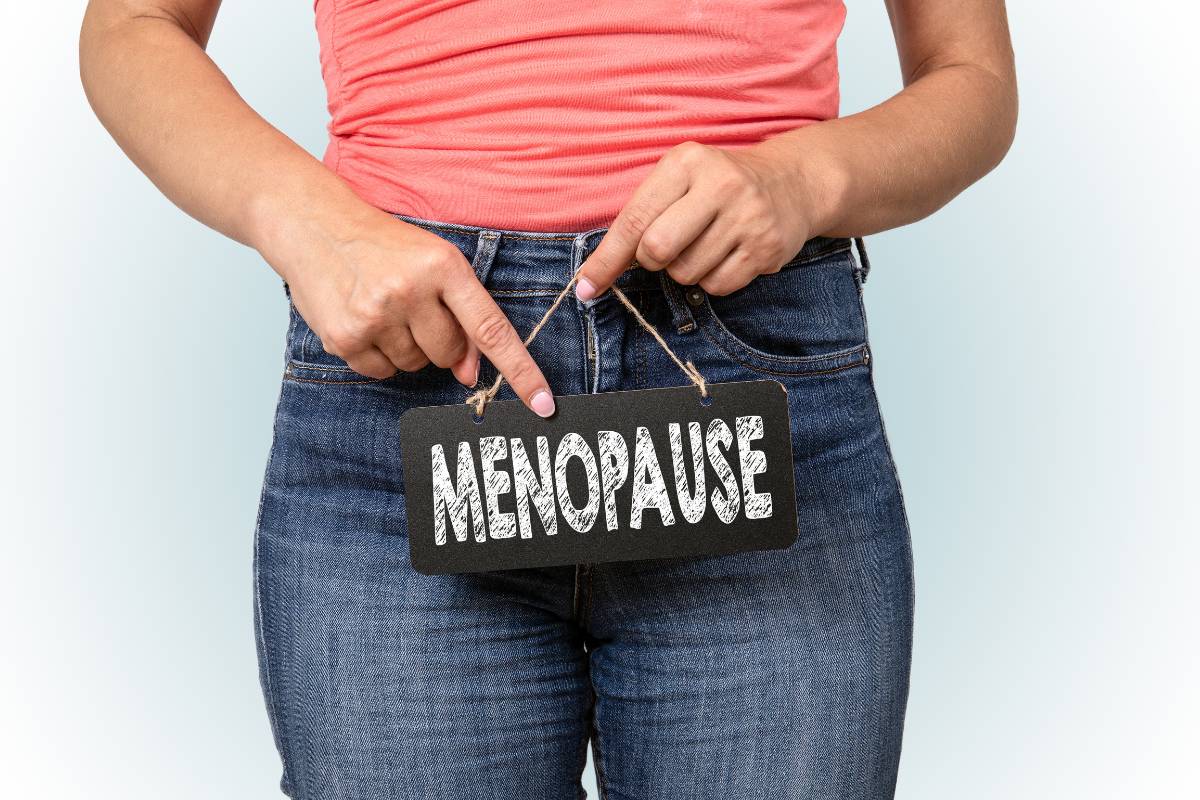Women’s Health and Peri-Menopause (Early Stages)

There’s a lot more to menopause than just “the end of periods.” Believe it or not, the lead-up phase—peri-menopause—can be downright perilous, especially for women under forty. And all too often, it flies under the radar, dismissed as mere “moodiness” or “just another cycle.”
Table of Contents
ToggleWhy Peri-menopause Isn’t a Joke
Every time someone chalks up mood swings to “just PMS,” it’s a missed opportunity to take real symptoms seriously. Sure, we laugh about being irritable around our cycles, but peri-menopause can hit harder, combining physical, emotional, and cognitive challenges.
Erratic hormones can leave you scrambling to hold it together in meetings. Brain fog can turn simple tasks—like balancing your checkbook or remembering a grocery list—into Herculean feats, and sudden hot flashes can leave you drenched at your desk, scrambling for a tissue or a spare shirt. It isn’t “just another month”; it’s a seismic shift in how your body communicates with you.
The Roller Coaster of Symptoms
Imagine waking up at 3 AM, sheets soaked in sweat, heart pounding like you’ve just sprinted for the bus. That’s what up to 75% of women in perimenopause face—and it’s not a cute anecdote; it’s life-disrupting.
Then there’s the mood swings that go from zero to “I hate everyone” in seconds. The surprise migraines that blur your vision mid-presentation, and the creeping sense of disorientation when you find yourself staring blankly at your reflection, wondering if that’s really you.
Did you know? One percent of women hit menopause before forty—and they’re looking at a 20% higher risk of heart trouble down the line.
That statistic alone should be enough to raise eyebrows. Yet so many stories go untold, as though silence somehow reduces the risk. In reality, the earlier the transition begins, the more vigilant we need to be about cardiovascular health, bone density, and mental well-being.
When It Hits Home
Let me get personal for a sec. I was forty when it started—one month I felt “off,” the next I was snapping at friends, crying over nothing, terrified I was losing my mind. My mum and aunt sighed, said “welcome to the change of life,” and handed me tea as if it were a cure.
I thought, No way—too young for this. But my productivity plummeted, my partner tip-toed around me, and every conversation felt like walking through a minefield. For nearly a year, I wondered whether I’d ever feel like my old self again or if this tornado inside me would become permanent.
Finding Some Relief
After months of trial, error, and false starts—trying everything from herbal tinctures to yoga videos at 5 AM—I finally stumbled on Amberen in the pharmacy aisle. Did it cure everything? Not even close. But it took the edge off the mood swings enough that I could function without feeling like a stranger in my own body.
My doctor then prescribed a customised perimenopause regimen. A low-dose formula to balance those racing hormones, accompanied by calcium supplements to shore up my bone health.
Eight years on, I’m mostly down to the occasional headache or a blurry-vision day—and, yep, the odd hot flash that reminds me I’m still in transition. I even shopped around for private healthcare in London. Because sometimes NHS waitlists are longer than a Monday morning commute.
What Science Is Saying
Emerging research is finally catching up to our lived experiences. Recent studies suggest early action—think routine bone-density scans starting as early as the first year of perimenopause, regular cardiovascular screenings, and cognitive behavioural therapy (CBT) for insomnia—can slash the worst of symptoms by almost 40%.
Pair that medical vigilance with lifestyle tweaks—gentle strength training to maintain muscle mass, mindfulness meditation to curb anxiety spikes, and a Mediterranean-style diet rich in calcium and phytoestrogens—and you’re not just surviving perimenopause; you’re setting yourself up for a robust second act.
Did you know? Up to 75% of women in perimenopause experience hot flashes or night sweats severe enough to disrupt daily life.
When you add those numbers together—75% suffering major discomfort, 1% facing early menopause, 20% higher heart-disease risk—you realize this is a public-health matter, not a personal quirk.
More Than Physical
Beyond the sweats and mood swings, there’s the mental weight. Anxiety can flare up over the smallest things: a missed call, a half-empty inbox, or a stray thought about the future. Depression can sneak in on quiet mornings, making the world feel heavier than usual.
Some days, you barely recognize yourself—like you’re an actor playing a role you don’t remember auditioning for. That kind of dissociation can strain any relationship. Friends drift away because they don’t know how to help; partners step back, scared to say the wrong thing. Without the right support, perimenopause can feel like a social exile.
Impact on Relationships and the Importance of Treatment
Left untreated, these symptoms can lead to loneliness, friction in personal and professional relationships, even divorce. Imagine trying to explain to a colleague why you exploded in a meeting or reassuring your partner after snapping over something trivial. Early diagnosis and targeted treatment aren’t just about comfort; they’re about preserving the bonds that matter.
Your Next Steps
- Listen to your body. If you’re off-kilter for more than a few months, insist on hormone level testing—don’t let anyone dismiss you as “just stressed.”
- Speak up. Share your experiences with trusted friends or online communities; you’ll be surprised how many stories resonate.
- Explore treatment options. From low-dose hormone replacement therapy (HRT) to non-hormonal alternatives, find a specialist who tailors the plan to you.
- Embrace lifestyle interventions. Strength training, meditation, a heart-healthy diet, and regular sleep hygiene practices—these aren’t luxuries; they’re essentials.
- Schedule preventive screenings. Annual bone-density scans and cardiovascular check-ups can catch issues before they become crises.
Looking Ahead
Perimenopause isn’t a curse—it’s a call to action. It’s a chance to redefine your relationship with your body, to advocate for your health, and to build resilience you’ll carry into the next decades. By arming yourself with knowledge, community support, and proactive care. You won’t just weather this transition—you’ll emerge stronger, wiser, and ready for whatever comes next. You’ve got this.
Published by Mary Scott
I'm a published author, a screenwriter and I have also created an audio series show along with an animated short videos. I love music and working in the film industry. My goal is to work for Hallmark. View more posts
Recent Post
How to Transform Your Smile This Summer







